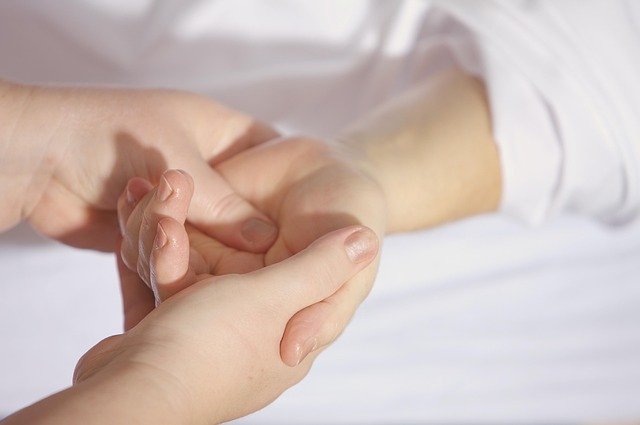Understanding Parkinson's Disease: Symptoms, Causes, and Effective Treatment Strategies
Parkinson's disease is a complex and progressive neurodegenerative disorder that severely impacts motor skills and daily life. It is characterized by the loss of dopaminergic neurons in the brain and affects millions of people worldwide. Therefore, understanding and diagnosing Parkinson's disease is crucial. This article provides a detailed analysis of treatment options and the latest research findings on this condition.

Parkinson’s disease represents one of the most common neurodegenerative disorders, affecting approximately 145,000 people in the United Kingdom. This progressive condition primarily impacts the brain’s ability to produce dopamine, a crucial neurotransmitter responsible for coordinating smooth, controlled movements. While there is currently no cure, various treatment strategies can significantly improve quality of life and help manage symptoms effectively.
The disease typically develops gradually, often beginning with subtle changes that may go unnoticed initially. Understanding the progression, symptoms, and available treatments empowers patients and their families to work closely with healthcare professionals in developing comprehensive management plans.
What Are the Symptoms of Parkinson’s Disease?
Parkinson’s disease presents through both motor and non-motor symptoms that can vary significantly between individuals. The primary motor symptoms include tremor, particularly noticeable when at rest, muscle rigidity or stiffness, bradykinesia (slowness of movement), and postural instability leading to balance problems.
Tremor typically begins in one hand or finger, creating a characteristic pill-rolling motion. Muscle rigidity affects the limbs and trunk, making movement feel stiff and uncomfortable. Bradykinesia manifests as difficulty initiating movement, reduced facial expressions, and smaller handwriting. As the condition progresses, walking may become shuffled with shorter steps.
Non-motor symptoms often appear years before motor symptoms and include sleep disturbances, depression, anxiety, cognitive changes, constipation, loss of smell, and speech changes. These symptoms can significantly impact daily life and may require specific treatment approaches alongside motor symptom management.
What Treatment Options Exist for Different Stages of Parkinson’s Disease?
Treatment approaches vary depending on the stage and severity of symptoms. In early stages, doctors may recommend lifestyle modifications, physical therapy, and sometimes delay medication until symptoms significantly impact daily activities. This approach helps preserve medication effectiveness for later stages.
Medication remains the cornerstone of treatment, with levodopa being the most effective drug for managing motor symptoms. Other medications include dopamine agonists, MAO-B inhibitors, and COMT inhibitors, each working through different mechanisms to support dopamine function or reduce symptom severity.
Advanced treatment options include deep brain stimulation (DBS), a surgical procedure involving implanted electrodes that deliver electrical impulses to specific brain regions. This treatment can be highly effective for patients experiencing medication-related complications or severe motor fluctuations.
What Factors Can Aggravate Parkinson’s Disease?
Several factors can worsen Parkinson’s symptoms or accelerate disease progression. Stress significantly impacts symptom severity, often causing tremors to become more pronounced and movement difficulties to increase. Poor sleep quality, common in Parkinson’s patients, can exacerbate both motor and non-motor symptoms.
Certain medications, particularly those that block dopamine receptors like some antipsychotics and anti-nausea drugs, can worsen symptoms. Dehydration, infections, and other medical conditions can temporarily increase symptom severity. Environmental factors such as extreme temperatures, crowded spaces, or time pressure can also trigger symptom flare-ups.
Nutritional deficiencies, particularly protein timing with levodopa medication, can affect treatment effectiveness. High-protein meals can interfere with levodopa absorption, making symptom management more challenging.
How Can You Slow the Progression of Parkinson’s Disease?
While no treatments definitively slow disease progression, research suggests several strategies may help maintain function and potentially delay symptom worsening. Regular exercise, particularly aerobic activity, resistance training, and balance exercises, shows promising results in maintaining motor function and potentially providing neuroprotective benefits.
Physical therapy, occupational therapy, and speech therapy play crucial roles in maintaining function and adapting to changing abilities. These interventions help patients develop strategies for daily activities, improve safety, and maintain independence longer.
Emerging research explores neuroprotective treatments, including certain medications, dietary approaches, and lifestyle modifications. While results remain preliminary, maintaining overall health through proper nutrition, social engagement, and mental stimulation may support brain health.
What Medications and Natural Remedies Help Manage Parkinson’s?
Levodopa remains the gold standard medication, often combined with carbidopa to improve effectiveness and reduce side effects. Dopamine agonists like pramipexole and ropinirole can be effective, particularly in younger patients or early-stage disease. MAO-B inhibitors such as selegiline and rasagiline may provide symptom relief and potentially neuroprotective benefits.
| Treatment Type | Provider/Option | Cost Estimation |
|---|---|---|
| NHS Specialist Care | Local NHS Trusts | Free at point of care |
| Private Neurologist | BUPA, Nuffield Health | £200-400 per consultation |
| DBS Surgery | NHS or Private | Free (NHS) / £15,000-25,000 (Private) |
| Physiotherapy | NHS/Private clinics | Free (NHS) / £40-80 per session |
| Speech Therapy | NHS/Private providers | Free (NHS) / £50-100 per session |
Prices, rates, or cost estimates mentioned in this article are based on the latest available information but may change over time. Independent research is advised before making financial decisions.
Natural approaches include regular exercise, which research suggests may be as important as medication for maintaining function. Tai chi, yoga, and dance therapy show particular promise for balance and movement quality. Dietary approaches, including Mediterranean-style diets rich in antioxidants, may support overall brain health.
Complementary therapies such as massage, acupuncture, and meditation may help manage stress, pain, and sleep issues, though they should complement rather than replace conventional treatments. Always discuss natural remedies with healthcare providers to ensure they don’t interfere with prescribed medications.
Managing Parkinson’s disease requires a comprehensive, individualized approach combining medical treatment, lifestyle modifications, and supportive therapies. While the condition presents significant challenges, many patients maintain good quality of life for years with appropriate treatment and support. Regular communication with healthcare teams, staying informed about new treatments, and maintaining social connections remain essential elements of effective management. The future holds promise with ongoing research into new medications, surgical techniques, and potential neuroprotective strategies.
This article is for informational purposes only and should not be considered medical advice. Please consult a qualified healthcare professional for personalized guidance and treatment.



